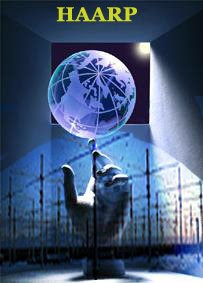Japan had a weak point in its nuclear plants and the International Atomic Energy Agency (IAEA) said it made it during a meeting in Tokyo in December 2008. In a cable released by Wikileaks, the U.S. Embassy reported that the IAEA warned that safety guidelines against earthquakes had been revised only three times in the past 35 years.
The agency insisted that Japan should learn from "recent experiences." "Recent earthquakes in some cases have exceeded the design with some plants that were built and this is a serious problem to which must now go work on security," said the cable that has been echoed by the British newspaper The Daily Telegraph .
The "recent event" alluding to the earthquake of magnitude 6.8 on the Richter scale that was damaged on 16 July 2007, the Japanese nuclear power Kashiwazaki-Kariwa, the largest in the world. On that occasion, the Government itself acknowledged that the utility TEPCO, which owns the plant, had reported a slow and undisciplined on the real damage.
In 2006, the year before the earthquake that caused the stoppage at the plant in Kashiwazaki-Kariwa, U.S. diplomats in a telegram reporting that a Japanese court ordered the stoppage in the second reactor at the Shika plant the possibility that he could not withstand major earthquakes. A group of 135 civil plaintiffs had complained to Rikudo, the utility owner, in May 2005.
"The complaint against Rikudo saying the Shika plant is unsafe because of concerns about earthquakes is not surprising, given the many complaints that have arisen in the past," stated the release of the embassy. "What is striking here is that claimants eventually they won the case," he added.
An official of the Japanese Nuclear Safety Agency (NISA) informed the Embassy that, being a civil, electrical Rikudo was not required to stop reactor. The then president of the electric company, Isao Nagahara said that it was "deeply regrettable" the decision and planned to appeal. The then director of the Japanese agency security Kenkichi Hirose, said: "I never thought that a trial court may order the cessation of activity in a plant." The embassy noted in his report that although the power company was not obliged to cease the activity of the reactor, would face an uphill battle to win support from some citizens reluctant to have their homes against a nuclear plant.
"Especially if you are not convinced that the next big earthquake will cause major devastation," the report concluded. 


The agency insisted that Japan should learn from "recent experiences." "Recent earthquakes in some cases have exceeded the design with some plants that were built and this is a serious problem to which must now go work on security," said the cable that has been echoed by the British newspaper The Daily Telegraph .
The "recent event" alluding to the earthquake of magnitude 6.8 on the Richter scale that was damaged on 16 July 2007, the Japanese nuclear power Kashiwazaki-Kariwa, the largest in the world. On that occasion, the Government itself acknowledged that the utility TEPCO, which owns the plant, had reported a slow and undisciplined on the real damage.
In 2006, the year before the earthquake that caused the stoppage at the plant in Kashiwazaki-Kariwa, U.S. diplomats in a telegram reporting that a Japanese court ordered the stoppage in the second reactor at the Shika plant the possibility that he could not withstand major earthquakes. A group of 135 civil plaintiffs had complained to Rikudo, the utility owner, in May 2005.
"The complaint against Rikudo saying the Shika plant is unsafe because of concerns about earthquakes is not surprising, given the many complaints that have arisen in the past," stated the release of the embassy. "What is striking here is that claimants eventually they won the case," he added.
An official of the Japanese Nuclear Safety Agency (NISA) informed the Embassy that, being a civil, electrical Rikudo was not required to stop reactor. The then president of the electric company, Isao Nagahara said that it was "deeply regrettable" the decision and planned to appeal. The then director of the Japanese agency security Kenkichi Hirose, said: "I never thought that a trial court may order the cessation of activity in a plant." The embassy noted in his report that although the power company was not obliged to cease the activity of the reactor, would face an uphill battle to win support from some citizens reluctant to have their homes against a nuclear plant.
"Especially if you are not convinced that the next big earthquake will cause major devastation," the report concluded.



No comments:
Post a Comment